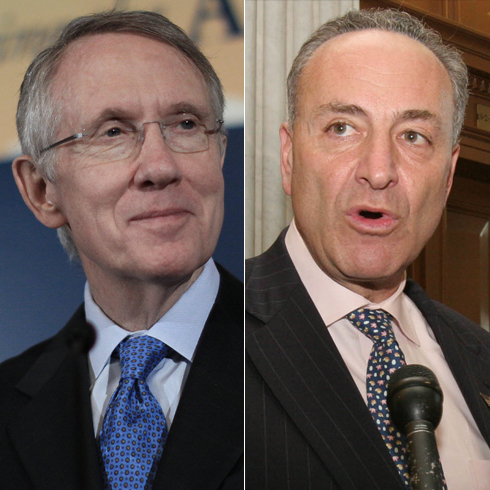The story of the day on the health care beat belongs to Sens. Chuck Schumer (D-NY) and Tom Carper (D-DE). Their new proposal to devise a national public option in such a way that states could choose not to participate quickly overtook yesterday’s news from the CBO that the Senate Finance Committee bill would save billions of dollars. But is it the long-sought solution to the public option conundrum?
The short answer is: it’s way too early to tell.
“The amount of ink and media attention being spilled on this issue bears little relationship to where it is in the process,” said one leadership aide.
Conversations with a number of Senate aides from across the Democratic spectrum all touched on the same theme: The idea may be decent on the merits, and appealing to some key conservative Democrats. But all 60? Or 59 plus Olympia Snowe? That’s hard to answer when the concept hasn’t even been fully fleshed out. And yet, it’s almost certain that, as an amendment to the bill that ultimately reaches the Senate floor, it would need 60 one way or another.
Then there are House liberals, who remain extremely focused on a Medicare-like public option, available everywhere. They’re not saying much about this idea just yet, but from initial conversations with House aides, it’s unlikely that they’re going to drop their campaign for a robust public option and get on the “opt-out” bandwagon. Whether they would ultimately settle for such a compromise if it came out of a conference committee is a question whose answer enters the realm of multiple levels of speculation. There’s no denying that the initial reception by both liberal and conservative Democrats has been generally positive. But as the quote above indicates, we’re getting a bit ahead of ourselves.










